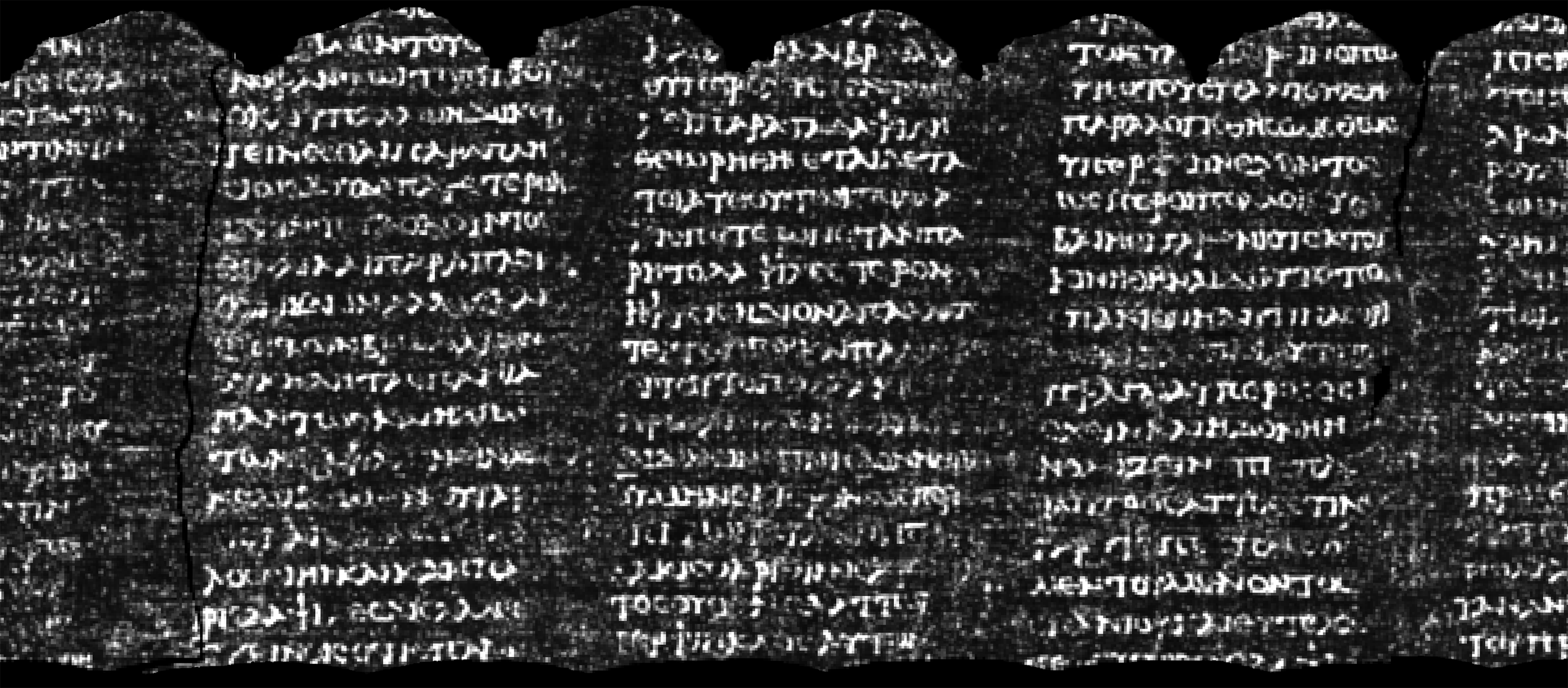Further Progress on Vesuvius Scrolls
“Epicureanism says hi, with a text full of music, food, senses, and pleasure!”
That’s what one scholar has to say about a recently digitally decoded text of an unopenable, carbonized ancient scroll.
–

Detail of the winning team’s submission image
The text was produced by a team of three students who were just awarded a $700,000 prize for their work in coding, computer vision, and machine learning that has led to progress in virtually unrolling and “reading” the scroll, which is one of many in a small library buried in lava by the eruption of Mount Vesuvius in 79 A.D
Information about the contest and some of the technical matters can be found at the Vesuvius Challenge site.
Of particular interest, of course, is the content of the scrolls. What do they say?
The organizers of the Vesuvius Challenge write:
To date, our efforts have managed to unroll and read about 5% of the first scroll. Our eminent team of papyrologists has been hard at work and has achieved a preliminary transcription of all the revealed columns. We now know that this scroll is not a duplicate of an existing work; it contains never-before-seen text from antiquity. The papyrology team are preparing to deliver a comprehensive study as soon as they can. You all gave them a lot of work to do! Initial readings already provide glimpses into this philosophical text. From our scholars:
The general subject of the text is pleasure, which, properly understood, is the highest good in Epicurean philosophy. In these two snippets from two consecutive columns of the scroll, the author is concerned with whether and how the availability of goods, such as food, can affect the pleasure which they provide.
Do things that are available in lesser quantities afford more pleasure than those available in abundance? Our author thinks not: “as too in the case of food, we do not right away believe things that are scarce to be absolutely more pleasant than those which are abundant.” However, is it easier for us naturally to do without things that are plentiful? “Such questions will be considered frequently.”
Since this is the end of a scroll, this phrasing may suggest that more is coming in subsequent books of the same work. At the beginning of the first text, a certain Xenophantos is mentioned, perhaps the same man — presumably a musician — also mentioned by Philodemus in his work On Music.
Philodemus, of the Epicurean school, is thought to have been the philosopher-in-residence of the villa, working in the small library in which the scrolls were found.
Some other images of the text and transcriptions of it are here.


Of all things…Philodemus again! It should be some kind of Murphys law- if any new writings from antiquity are ever recovered again, they will belong to the most tedious and and uninformative philosopher imaginable.
Stunning! Yes, Philodemus is a bore, but the “texts” that led to deciphering Linear B weren’t about rocket science either.
But wherever there are more burned scrolls, hope remains! The technical achievement is truly amazing, of course.